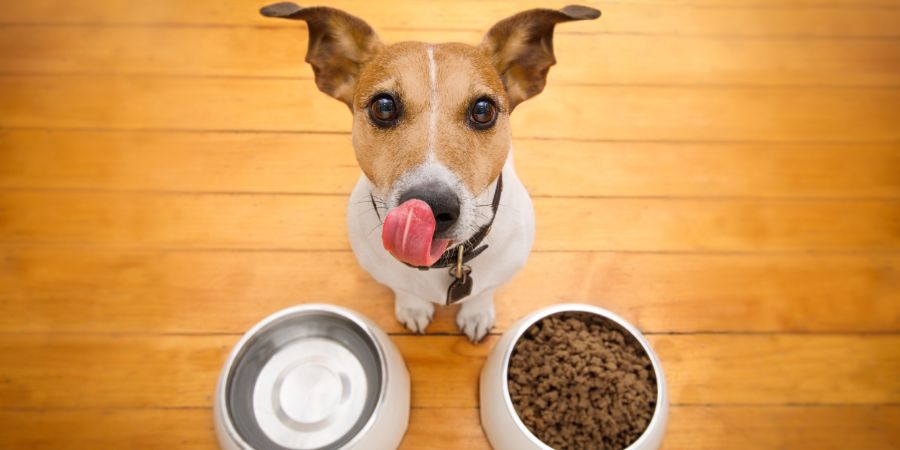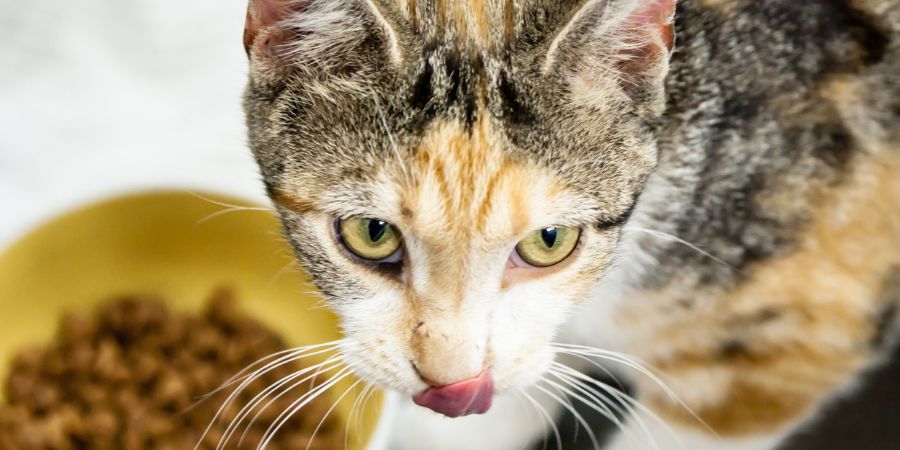According to our 2022 PDSA Animal Wellbeing (PAW) Report, less than one per cent of pet owners currently feed their dog or cat a commercial vegan or vegetarian diet. But, can cats and dogs truly be vegan? And is it safe for your four-legged friend? Read on to find out.
Can dogs be vegan?
In theory, yes, dogs can be vegan.
Whilst their wolf ancestors were carnivores and needed meat to survive, that’s not the case for the present-day pooch. It might surprise you, in fact, to learn that dogs are omnivores - meaning they can eat and derive nutrients from fruits and vegetables.
In some cases, dogs can even be allergic to animal proteins and will be prescribed by their vet a special hypoallergenic dog food which contains no animal products (although they aren’t always necessarily marketed as being vegan).
Therefore, so long as your dog’s diet contains all the essential nutrients needed to be healthy, including vitamins, minerals, proteins, carbohydrates and fats, they can technically eat a vegan diet. If you do choose a vegan diet for your dog, always look for a high quality, commercially available, complete dog food. Avoid homemade vegan diets, or any homemade diet for that matter, unless on the advice of a specialist veterinary nutritionist, as it’s really difficult to meet their nutritional requirements this way.
Indeed, it’s worth highlighting that the British Veterinary Association (BVA) does not currently encourage feeding dogs a vegan diet as it is much easier to get this balance of essential nutrients wrong than to get it right.

Can cats be vegan?
No, cats can’t be vegan.
Cats are what’s known as obligate carnivores, meaning they need meat as a major part of their diet. Domestic cats, like their wild ancestors, still have a strong hunting instinct and love to eat meat.
In fact, they rely on meat for essential nutrients such as Vitamin A, Arginine, Taurine and Arachidonic acid. Taurine, in particular, is essential to a cat’s diet and can only be found in animal-based proteins. This amino acid is really important for their eyesight, heart function, growth and immune system.
Ultimately, cats need to eat meat to get important nutrients that aren’t available in vegetables. If they are given a vegan or plant-based diet they can become very ill.

Got it! So, does that rule out an insect diet for dogs and cats?
Over the past few years, you may have noticed adverts for insect-based pet food on the market. In fact, according to the findings of our 2022 PAW Report, less than one per cent of pet owners currently feed their dogs an insect-based diet. As the name suggests, this pet food contains insects, like the black soldier fly larvae, crickets or mealworms, as its main source of protein - instead of meat.
But is it safe, or appropriate, to feed your pet this food?
Well, as we’ve already established above, your cat needs meat as a major part of their diet. For this reason, a strictly insect-based diet isn’t going to cut it for your cat.
As for dogs, whilst the protein in insects is similar to animal protein (they are full of healthy nutrients), no long-term studies have been done on the effect this type of food has on our furry friends. So, there’s no guarantee that feeding your dog this diet won’t eventually cause any health conditions in the future.
The Verdict
Ultimately, dogs are omnivores, which means they can eat both meat and plant-based foods - so it is, technically, possible to feed your dog a vegan diet.
If you are considering feeding your dog a vegan diet, remember to speak to your vet first, as some dogs will have dietary requirements that can’t be met on a plant-based diet. A vet should also be able to point you in the direction of a food manufacturer whose vegan pet food is developed by a board-certified veterinary nutritionist.
For cats, however, a vegan diet is a firm no-no. They need meat to survive.
All in all, the most important thing to remember is to ensure your pet gets a complete, well-balanced diet. Also, try not to change their food too abruptly as this can sometimes upset their tummy. Indeed, always change your dog’s diet gradually, and your cats too, by slowly introducing new food.
Learn more about pet food and diets on our Pet Health Hub.
